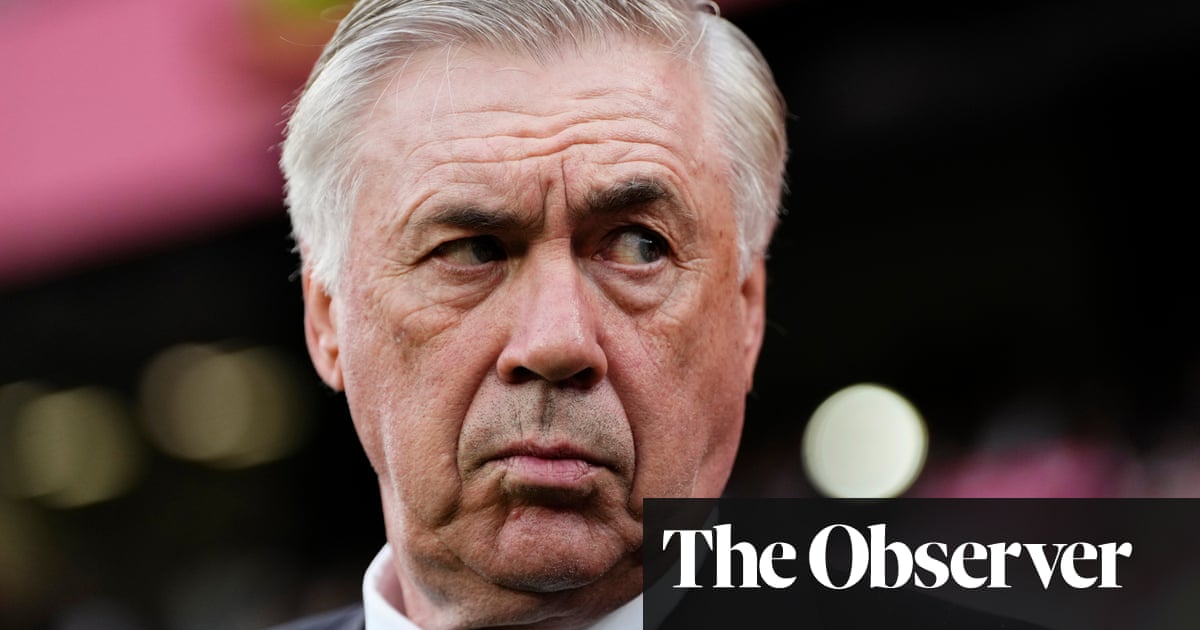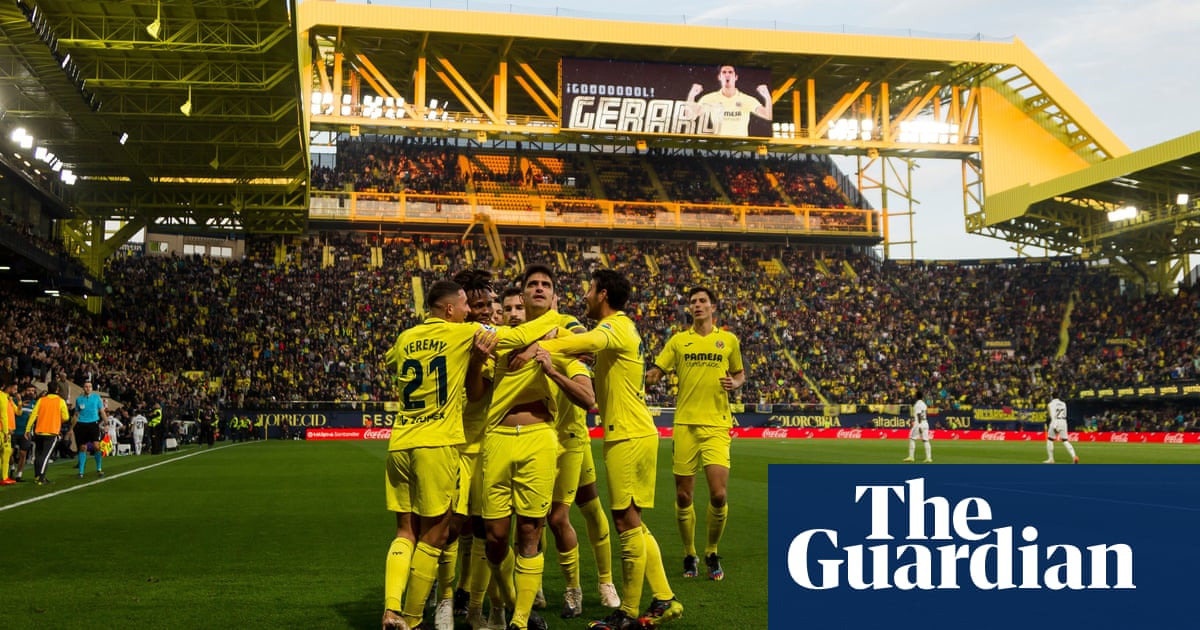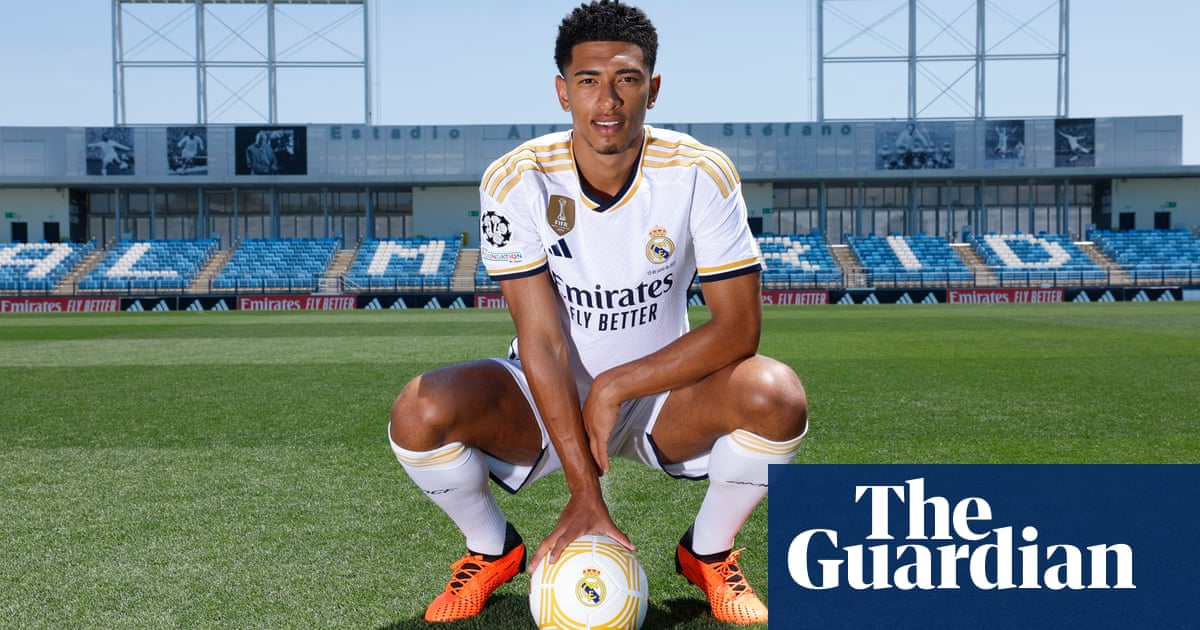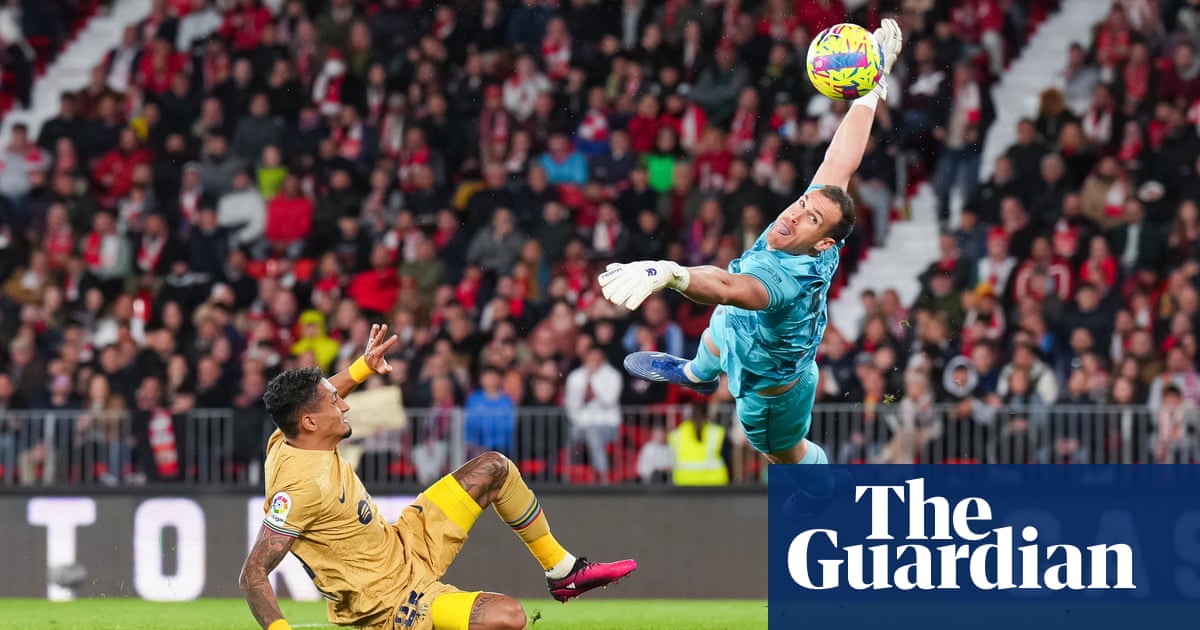
The season that ended early with Carlo Ancelotti becoming the only manager to win all five of Europe’s major leagues started with a phone call about something completely different. If this wasn’t exactly the way they had planned it, that’s because it was better. In late May last year Zinedine Zidane announced he was leaving Real Madrid, dropping a letter bomb as he went, and the sudden search for someone to replace him wasn’t going particularly well. Until one Saturday when, discussing other deals, they told Ancelotti as much, the conversation shifting from players to coaches, an idea forming. What about me?
A couple of calls later and it was done. By the Tuesday, Ancelotti had been announced as the new old manager. They briefed him but he didn’t really need them to: it was enough to know that this is Real Madrid. Sure, he had been unhappy about how they had sacked him last time, yes he was aware of the pressure and politics it brings having suffered it himself, but still: it’s Real Madrid, a second chance he never expected. “If it had been anyone else, I would have said ‘no’,” he claimed. Everton weren’t as bothered as they should have been and if some in Madrid weren’t as excited as they should have been either, Madrid had a manager.
Twelve months on, they have a league title too, Ancelotti’s first in Spain to go with one at each of Milan, Chelsea, PSG and Bayern. On Wednesday night, they also have a Champions League semi-final second leg, the fans celebrating this success also trying to prepare the ground for that one, chanting “si, se puede!” – yes, we can! And so far the evidence in Europe is that somehow, even if they don’t entirely know how, they can. Domestically, it is easier to understand: while the victory that removed any last doubt they would win the league was another comeback, winning 3-2 at Sevilla having been 2-0 down, in the end Madrid’s title comes down to the most basic thing of all: they’ve been better than everyone else.
On Saturday afternoon, they defeated Espanyol 4-0 at the Bernabéu, winning the league in front of their fans for the first time in 15 years. “We did it with four weeks to spare, and that says it all,” insisted Luka Modric.
If at times it has been hard to judge how good Madrid are, if Marca’s Rubén Jiménez described this season as a cowboys and Indians film without any Indians, Atletico 25 points off where they finished last year with 12 to play for and Barcelona and Sevilla 13 points off, Madrid haven’t wrapped up a league this early in 32 years. They lead by 15 points, which would equal the biggest ever margin. They have scored more goals, created more chances and completed more passes than anyone. And they have lost just three times, responding to each defeat by going 10 weeks unbeaten: Espanyol in week eight, Getafe in week 19, Barcelona in week 29.
That last one hurt. This is a team with flaws but with moments too, players whose highest level is superior, and they tend to step up when it mattered most. “We won in hard places,” Ancelotti said, “Sevilla, San Sebastian, Bilbao, Barcelona.” Away at nine of the top 10 – this week they visit Atlético – they’ve only dropped points in a draw at Villarreal. At the Bernabéu they beat Sevilla, Atlético and Real Sociedad. Madrid have only had two spells off the top – after week two and between weeks 9 and 14 when they had a game in hand – and won’t be off it for the rest of the season now.
Which is why they were celebrating on Saturday, the trophy actually handed to them on the day they won the thing, which is progress, Marcelo bowing before Modric, Nacho fetching David Alaba’s chair and taking Sergio Ramos and Raúl’s role of performing bullfighting passes, kids sliding by. Players and staff danced in a huge circle. Fans followed the bus down the Castellana, trophy taped on tight to prevent another tumble, while over 100,000 people waited at Cibeles, the Roman Goddess of fertility. Carlo Ancelotti was thrown into the sky, shouting “More! More!” “I enjoyed being in the air,” he said. Then he thanked Madrid for this opportunity.
There was a hint of tears as he talked. “Getting emotional is genetic: my grandfather did it and my father did it too,” he said. And yet while that was understandable, if there’s anything that has defined this title-winning season it is how calm he has been, how in control; how he doesn’t seem to care about any of the crap, barely an eyebrow raised, albeit raised a long way. That has always been the case but this year, at 62, given another go, all the more so. “The work has been easy for me,” he said, and sometimes it feels like it really has been, like he has been able to leave them to get on with it and just enjoy the ride, like this is not about him. Not least because the person who least makes it about Carlo Ancelotti is Carlo Ancelotti.
There was a moment earlier this season when Ancelotti said Modric, Toni Kroos and Casemiro do things he hasn’t asked them to do. “Madrid fans can rest easy,” he said, “I’m not going to interfere.” There may be something in that and this has been their league. It has been Karim Benzema’s league, the best player in Spain by a very long way. And it has Thibaut Courtois’s league, saving 75% of shots faced, running at a miracle a match or more. It has certainly been Vinícius’s league, scoring twice as many as in the last three seasons combined, even though it didn’t look likely to begin with. This league has been about them and their teammates, but this is also Ancelotti’s league.
When Ancelotti took over, his idea was to play Eden Hazard and Gareth Bale up front but Vinícius took over, his case made and closed swiftly, quietly. Pragmatism without posturing: if it doesn’t work, move on; if it does work, do it, facilitate it. Bale started the first three games and only once thereafter, clocking up more minutes with Wales than Madrid; Hazard has scored no league goals. The most expensive players in Madrid’s history with the highest salaries in the squad, their absence has not mattered. Nor even has the departure of Sergio Ramos and Raphaël Varane, the defence that sustained them over a decade. In part, because Ancelotti didn’t let it.
In those early weeks, Dani Carvajal said this Ancelotti was different to the one he had known before in being more focused on the defence. He talked about how he wanted defenders to be pessimists, not optimists – it’s better they fear the worst. He, though, is an optimist with a lightness of touch, managing moments that, in this giant echo chamber, can become bigger than they really are. He knows: when he arrived, he was asked about Zidane’s complaints, the response suggesting his former assistant really should have known where he was. “I’ve been in football almost 40 years and people speak – it’s normal,” he said. There are things you can’t change, so don’t try. He made no demands, no requests for players, no complaints about gaps in the squad or players who didn’t care enough. He started no fires; instead he put them out, every debate gently dismissed, managed like it was the most natural thing in the world.
He won the league with a midfield aged, 36, 32 and 30. He didn’t really rotate, 10 of the XI clear (although Kroos and Modric have sat out a significant chunk of games). He ignored warnings about a late season collapse like last time, and they reached the season’s close in better physical shape than anyone expected. “I don’t listen to what’s said; I look at the data we have from games and training,” he said, trusting in fitness trainer Antonio Pintus who rejoined last summer. When it was suggested that they played too deep – the stats reveal a team lining up two and a half metres further back than last season – he said that Vinícius had a “motorbike in his boots” so why wouldn’t you play on the counter? After the PSG game, though, he agreed: they would step up.
He admitted mistakes, but said: “I can get it wrong once; I tend not to get it wrong twice.” When he was accused of suffering Benzema dependencia, he said he was proud to depend on the world’s best player. When Marco Asensio got angry, he said: “Good.” The next match Asensio scored a hat-trick and he wondered who to annoy next. When Kroos was angry at being replaced, Ancelotti turned to a recurring line he likes: “He got annoyed with the manager, not the man.” He reminded everyone of something a footballer had said to him, his understanding revealed: “The player who’s not pissed off at not playing is not a player at all.” When Dani Ceballos wanted more minutes, he said: “He’s right; I’ve been unfair.” Empathy reached players, who adore him, play for him, won the league with him.
One line stands out, even if few seemed to hear it. “I listen to my players,” he said, something so often seen as a weakness instead projected as a what it actually is: a strength. On Saturday night, once the plan had come together and as the open-topped bus edged down the Castellana with the league title on board, past Nuevos Ministerios and the science museum, beyond Colón and on to Cibeles, Carlo Ancelotti pulled on a pair of sunglasses and sucked on a gigantic cigar, the portrait of what he had done and how he had done it. “The Boss,” Vinícius called him.












